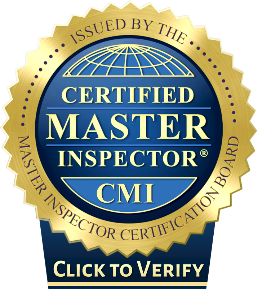PCA stands for Property Condition Assessment, which is a comprehensive inspection and evaluation of a commercial, industrial, or multi-family residential property’s physical condition.
A commercial property inspection is a thorough assessment of the physical condition of a commercial property, such as an office building, retail store, or industrial facility. The inspection is typically conducted by a licensed inspector, and it involves a comprehensive evaluation of the property’s structural, mechanical, and electrical systems, as well as its overall safety and compliance with relevant building practices.
The assessment can vary based on the specific requirements of the client, property type, and location. However, the general process for a PCA typically involves the following steps:
- Site inspection: The inspector will visit the property to conduct a visual inspection of the interior and exterior of the building, including the structural components, foundation, roofing, and any visible mechanical systems.
- Document review: The inspector will attempt to acquire any available documents related to the property, including construction plans, building permits, maintenance records, and any other relevant documentation.
- Interview stakeholders: The inspector may also interview key stakeholders, such as the property owner, tenants, and property managers, to gain a better understanding of the property’s history, maintenance practices, and any known issues.
- Report generation: Based on the inspection and documentation review, the inspector will generate a Property Condition Report (PCR) which is a detailed report that outlines the property’s physical condition, including any deficiencies or areas of concern, as well as recommendations for repair or further evaluation.
- Follow-up: Depending on the findings of the assessment, the inspector may recommend follow-up inspections or testing, such as a more detailed structural assessment or environmental testing for issues like asbestos or mold.
Overall, a PCA is a critical component of due diligence for any commercial real estate transaction or property management decision, as it provides valuable insights into the current condition of a property and helps to identify potential risks and liabilities.
Commercial & Industrial Real Estate Property
Commercial and industrial real estate properties are real estate properties used for business or commercial purposes rather than for residential purposes. Commercial real estate properties include office buildings, retail spaces, hotels, warehouses, and mixed-use properties, while industrial real estate properties include manufacturing plants, distribution centers, research and development facilities, and storage facilities.
Commercial real estate properties are typically located in areas with high foot traffic and good accessibility, such as central business districts or retail shopping centers. The value of commercial real estate properties is often tied to the rental income they generate, with investors seeking to acquire properties that will provide steady cash flow over the long term.
Industrial real estate properties are typically located in areas with easy access to transportation and logistics, such as major highways or ports. The value of industrial real estate properties is often tied to the productivity and efficiency of the businesses that occupy them, with investors seeking to acquire properties that are well-suited to the needs of the businesses that will be using them.
Both commercial and industrial real estate properties can be owned by individual investors, corporations, or institutional investors such as real estate investment trusts (REITs). Owning and managing commercial and industrial real estate properties can be complex and require specialized knowledge and skills in areas such as leasing, property management, and financing.
